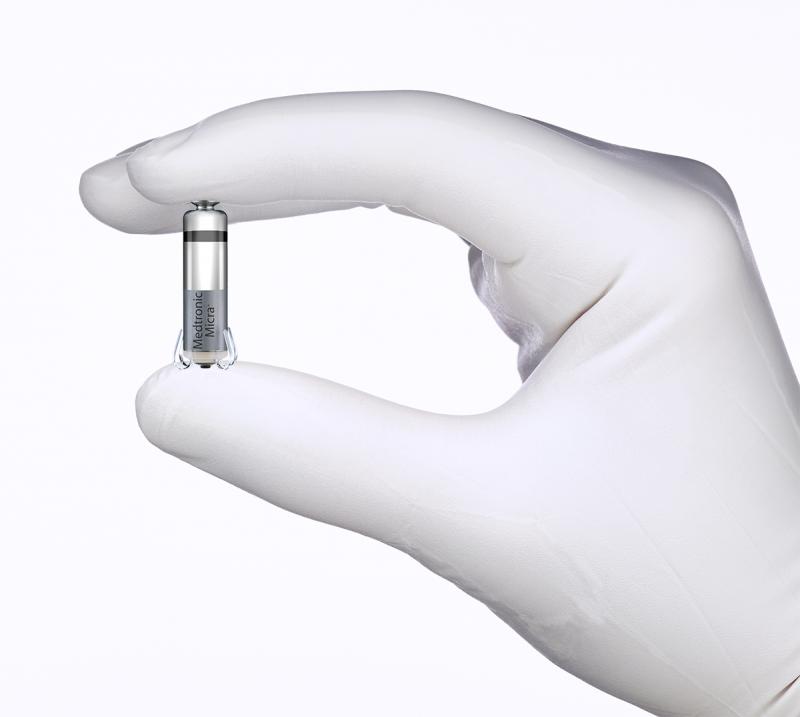Bayhealth now offers the world’s smallest pacemaker for patients with symptomatic slow heart rhythms. The Micra® Transcatheter Pacing System (TPS) is a new type of heart device, approved for Medicare reimbursement, which provides the most advanced pacing technology at one-tenth the size of a traditional pacemaker. The procedure to implant the Micra TPS was successfully performed on a 92-year-old patient by Bayhealth Cardiologist and Electrophysiologist Ray Miller, MD.
When a heart rhythm is too slow, typically less than 50 beats per minute, the heart is unable to pump enough oxygen-rich blood to the body during normal activity or exercise. This can cause symptoms such as dizziness, fatigue, shortness of breath or fainting spells. Pacemakers help restore the heart’s normal heart output by sending electrical impulses to increase heart rate. Dr. Miller explained that traditional pacemakers come in 1, 2, or 3 wire varieties and the one chosen is based on how many chambers in the heart they need to pace; Micra TPS is intended for patients who need a single chamber pacemaker to stimulate the right ventricle.
With greater ease of deployment, the Micra TPS can facilitate a safer procedure. Unlike conventional pacemakers, it’s unique in that it doesn’t require wire leads that go into the vein. Instead, this leadless pacemaker is implanted directly into the patient’s heart with small tines. This is done through a minimally invasive approach from a large vein in the leg, using a long guide sheath to assist with placement. It reduces the complications often associated with traditional pacing technology, with the two most common being infection from the incision site and problems with the lead. The device is also designed to automatically adjust pacing therapy based on a patient’s activity levels.
Examples where the standard pacemaker approach could be problematic include dialysis patients, those who’ve had breast cancer surgery with lymph node dissection, or when there’s venous occlusion, making lead placement impossible. “In these cases, we’d ordinarily have to do major chest surgery to screw a wire onto the surface of the heart. We now have this safer alternative to give these patients the pacing technology they need,” said Dr. Miller. Children that need a pacemaker may also be potential candidates for this new device because with traditional pacemakers, bodily growth can cause stretching of leads and potential failure.
“The Micra TPS has an amazing safety track record,” said Dr. Miller. “Having this new technology available at Bayhealth gives us a wonderful new tool in our chest, allowing us to choose which approach is best for any given patient.”
Visit Bayhealth.org/Heart-and-Vascular to learn more about how Bayhealth can help you stay heart healthy or call 1-866-BAY-DOCS (229-3627) to be matched with a doctor to meet your cardiac care needs.




















































